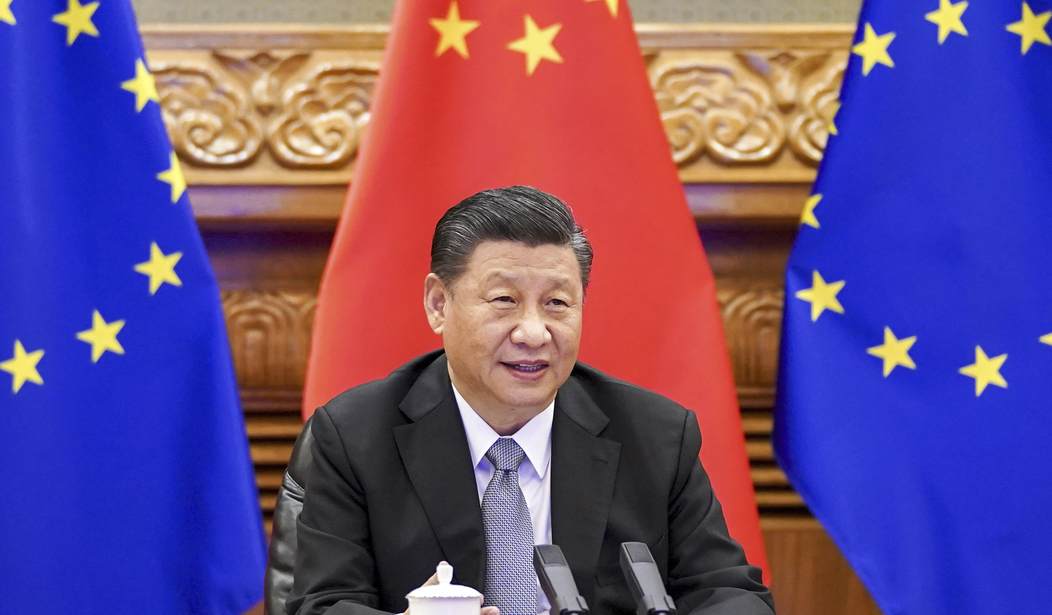The Biden administration has been asked for months now whether or not the 2022 Olympic Games will take place in Beijing, considering China's human rights abuses. Yet the White House has demurred, even in the face of bipartisan concerns and calls to boycott the Games there. As it turns out, though, the games may be in danger, but not for the reasons above. Due to the resurgence of the Wuhan coronavirus, which is yet again in Wuhan, the games are likely in danger.
Writing for The Washington Examiner, Cassidy Morrison on Thursday warned that "New COVID-19 outbreaks in China raise doubts about 2022 Winter Olympics in Beijing."
As she began her piece, "Outbreaks of the delta variant in China have caused the governing party to revert back to strict lockdown measures that will imperil the 2022 Winter Olympic Games that are set to begin next February in Beijing."
The lockdowns are back, and they sound pretty scary:
“Lockdown measures have been rapidly imposed in many parts of China,” said Yanzhong Huang, a senior fellow for Global Health at the Council on Foreign Relations. “I have not seen containment measures pursued in such an aggressive manner since April 2020.”
The Chinese government’s move on Sunday to close off the city of Zhangjiajie, home to about 1.5 million people, resembled the country’s early pandemic response to shut down the entire city of Wuhan, where the first COVID-19 outbreaks exploded in early 2020. While the heavy-handed isolation strategy worked to keep outbreaks at bay last year, reverting to that policy could hinder the country’s economy ahead of orchestrating the games.
"The 2022 organizers will move forward with planning the games as of right now, but the IOC has shown that it is willing to postpone over concerns of another COVID-19 wave," Morrison also noted.
Recommended
There is no mention of the concerns to do with boycotting the games over human rights abuses committed by the Chinese Communist Party.
Democrats and Republicans alike have made their voices heard when it comes to opposition to the 2022 Olympic Games taking place in Beijing. Perhaps the most high profile Democrat is Speaker Nancy Pelosi, who in May spoke before the Tom Lantos Human Rights Commission where she urged a "diplomatic boycott" of the 2022 Beijing Olympics. The commission is a bipartisan one, chaired by Reps. James P. McGovern (D-MA) and Chris Smith (R-NJ).
Other Democrats include Reps. Tom Malinowski (D-NJ), Gregory Meeks (D-NY), and Jennifer Wexton (D-VA), who signed onto a resolution in June calling on the International Olympic Committee (IOC) to take action when it comes to the games.
Last month the resolution, championed by Rep. Mike Gallagher (R-WI), received the endorsement of the bipartisan Problem Solvers Caucus.
Also last month, as Reuters reported, a bipartisan group of members of Congress called on the IOC to take further action and delay or move the Games.
The IOC has failed to take action when it comes to addressing China's human rights abuses. By sticking by referring to the body's actions, the White House has similarly failed to take any lead here.
What statements the IOC did make amounted to false promises. "We are not a super world government where the IOC could solve or even address issues for which not a United Nations security council, no G7, no G20 has a solution," IOC President Thomas Bach said.
In March, Sec. of State Antony Blinken claimed that "the Biden-Harris administration will stand against human rights abuses wherever they occur, regardless of whether the perpetrators are adversaries or partners."
In March the U.S. Olympic Committee said it was against a boycott.
"We are quite outspoken on human rights, the values of the United States in our conversations with the Chinese government and leaders, and any country where we have concerns — as was clear in the readout that — from the President’s call with President Xi, and as has been clear in every engagement we’ve had with the Chinese leaders. But our position on the Beijing Olympics has not changed," White House Press Secretary Jen Psaki claimed during a May press briefing. The administration has mostly stuck to such a statement.
The Tokyo Olympic Games are going on now, after being delayed a year. Athletes have had to play without fans or much interaction beyond competing, and the Games have also suffered from low ratings.

























